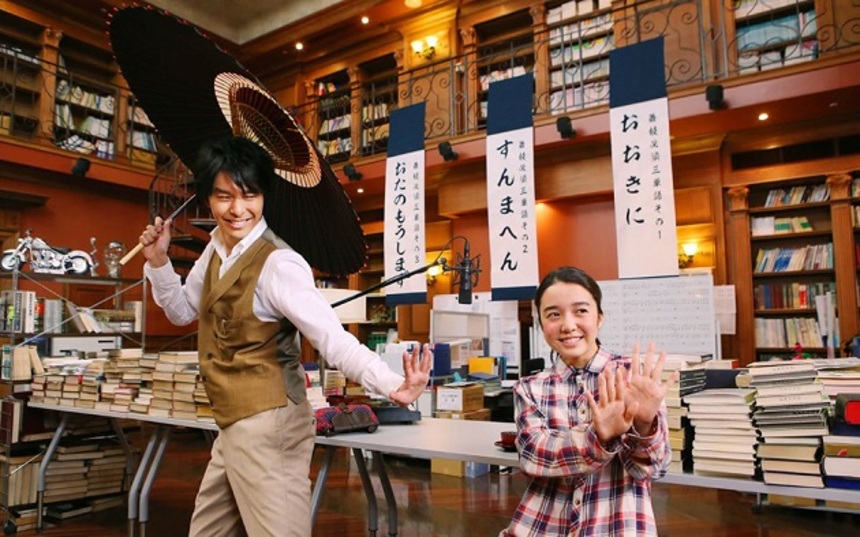Japan Film Festival 2014 Review: LADY MAIKO Is A Languidly Lyrical Linguistic Lark

In this 2014 film however relative newcomer Mone Kamishiraishi plays Haruko, a young girl who barges into a prestigious geisha house and begs to be a maiko. A language professor in the tea room overhears her, particularly her strong country-bumpkin accent. He strikes a deal with the tea-house owner and it is not long before he is teaching, and helping transform Haruko into a proper Kyoto maiden. That is basically the premise of this 135 minute film, a concept overstretched to include pointless subplots involving almost every geisha's tepid history in the tea-house.
The film's prologue focuses heavily on the Kyoto traditionalism of the geisha legacy, stressing politics, culture and formality in its opening conversation. Director Masayuki Suo is known for this; his previous films all containing elements of modern Japan and its conflicts with tradition and history. Although Lady Maiko is certainly a more subtle and crowd-pleasing venture, the fact Suo includes elements that question the patriarchy and outdated modes of address is impressive.
The film bursts into natural musical interludes and the lovely score and vocals work in some scenes better than others, particularly in the middle of the film where there is a lot of filler sequences. Each interlude is relatively no-frills, the mise-en-scene does not change and the transition to normal scenes is pretty standard fare. Ultimately though Mone has an endearing voice and attitude as she grows into a 'lady'. This is disturbing in its own right however given her young age, infatuation with a much older man and her subservient role in general.
Regardless, her teachers, the professor and fellow geisha all contribute to her learning and progression into this coveted society. There is of course drama, but unlike the darkness of the original play it is played rather low-key. The film is half coming-of-age and half character-study but neither side is really brought to fruition and the film struggles towards the end, despite the inclusion of some subtle commentary on the whole phenomenon as represented through a character that hates the geisha scene.
The beautiful tourist-baiting scenes of Kyoto and the geisha district are brought to vivid life thanks to the detail-laden environment and costume design although the film contains itself to one tea-house through the majority of its length. Leading to the films conclusion there are some well-choreographed scenes but it becomes quite a chore and stumbles through some tame drama in lieu of exciting songs or weighty consequences.
There is plenty of comedy but it is mostly language-centric playing on the differences in dialects and this humor is mostly lost on western audiences. Furthermore recent Japanese films have tackled the subject matter with much more aplomb; Maiko Haaaan!!! In particular offers an equally revealing albeit zany look at the exact same culture.
Ultimately Suo's musical is enjoyable enough if overlong and although the end of the film is a pointless mess, the lack of energy expelled throughout really makes proceedings drag.

Do you feel this content is inappropriate or infringes upon your rights? Click here to report it, or see our DMCA policy.






